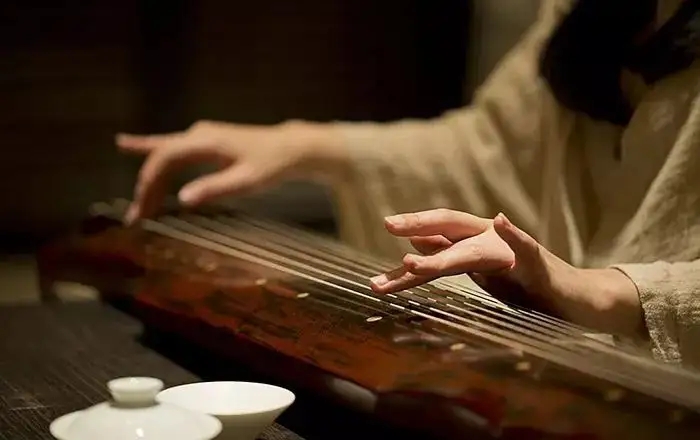How do beginners of guqin practice efficiently
How do beginners of guqin practice efficiently? As a beginner, correct practice methods are very important. We must avoid forming bad habits. Here are some efficient methods for beginners to practice guqin.

(1) During the piano practice, you should always keep your whole body relaxed and your heart peaceful. You can have a sense of conscientious effort to master fingering, and there should be no element of impatience and compulsion. It is necessary to allow a process from no meeting to meeting, from raw to cooked, and from shallow to deep. This process is even allowed to take a long time, so as not to make haste make waste. If you feel pain when pressing the string with your left finger at the beginning of learning, you should stop and practice later to avoid blisters and abrasion. If the blister has formed, stop the practice until the blister completely disappears. If the finger is worn, it must be fully healed before the practice. If your arms, fingers and wrists feel sour and tired, it is due to a mistake in the method and local tension. You should immediately stop to exercise and relax before practicing. In the practice of kneeling, you can just "kneel" at the beginning and put it on the string without actually pressing it on the string. After several days, when the part pressing the string gradually becomes less painful, increase the strength a little bit and play the string formally.
(2) You should arrange time to practice guqin every day instead of stopping for many days or practicing for several hours at a time. The effect of one hour per day cannot replace the effect of one hour per day.
(3) The requirement for pressing the string with the left hand is that the force is most likely to be small if the pressing is real, and it is appropriate to be as small as dumb if the tone is smaller. It is difficult for beginners to do this, but they should always bring their own attention to feel the relaxation and saving of force. This saving is also for the flexible use of the left hand. When practicing the left and right finger pressing, keep the force constant. And we should practice at a slow speed. We should first see the phoneme, and then move to the past. We should not blindly, randomly, and ineffectively repeat.
(4) During practice, try to understand and investigate the Qin music and even the sentences in the etude, and clearly divide the sounds into groups. Recite the music while looking at your left hand. It will be more effective to practice the music amusements, phrases and passages from small to large and from part to whole. During the exercise, you should also observe whether your hands are correct and tense. To correctly pop up groups of sounds, one sentence at a time. And each sentence or each group of sounds needs to be repeated many times to practice well. It is also necessary to practice the whole song from beginning to end without stopping, so that it can be really mastered. When practicing the piano, you should silently sing the melody you are playing, and use the melody in your heart to control and master the performance of your hands.
(5) When listening to the recording, it is better to sing along, at least silently, and clap your hands or feet every time. It is necessary for beginners to hit every beat with their feet when playing. However, with the improvement of playing degree, this beat action should be removed. The feeling of "beat by beat" can be used as the rhythm and scale of music.
(6) After you can recite the music and play the next piece of music completely, you can record your performance with a tape recorder, listen to it objectively and repeatedly, and you can clearly find problems, which is conducive to focus on practice to overcome problems. It would be better if we could record images to objectively examine ourselves.
(7) Imitation at the beginning is an effective method. When you can recite and play that piece of music skillfully, you can tune the strings to the same pitch of the piece of music provided by the teacher. In the past, many people used to teach the piano to play against each other, that is, this imitation based method.
 渝公网安备 50010702504639号
渝公网安备 50010702504639号